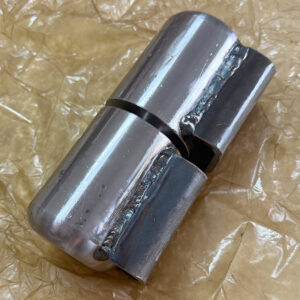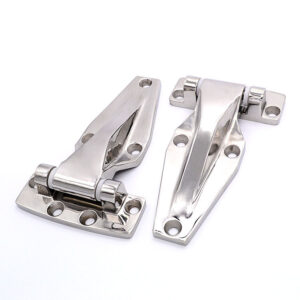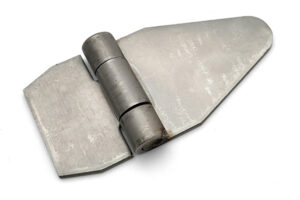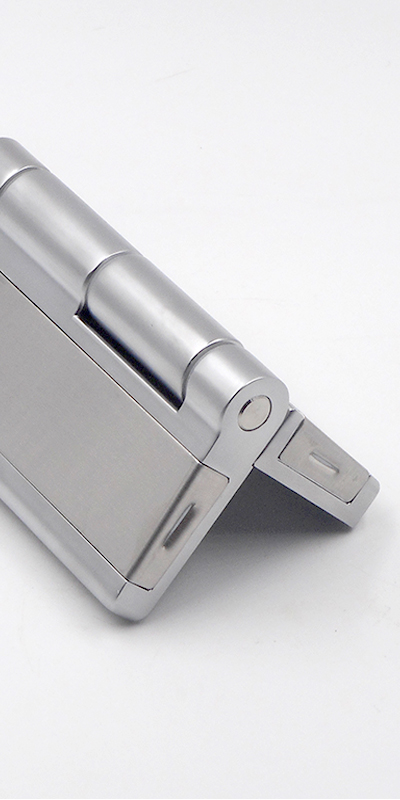Zinc die hinges are widely used in industrial environments due to their balance between strength, precision, and cost efficiency.
Zinc die hinges are strong enough for most heavy-duty applications, especially in equipment enclosures, electrical cabinets, and machinery doors. Their mechanical integrity, corrosion resistance, and design flexibility make them a preferred option for manufacturers seeking durable yet economical hinge solutions.
Zinc die casting technology ensures stability and consistent performance across high-load applications.
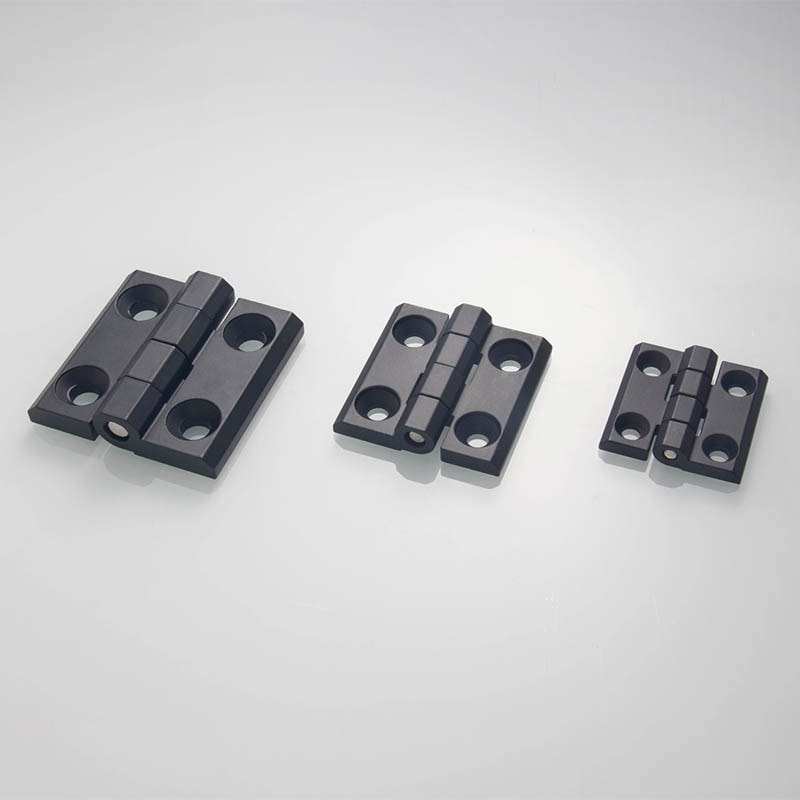
Mechanical Strength of Zinc Die Hinges in Industrial Applications
Zinc die hinges are engineered to perform under substantial load conditions. Their mechanical properties—high tensile strength, rigidity, and wear resistance—allow them to support heavy doors and industrial panels without deformation. When compared to traditional heavy duty hinges, zinc die cast types demonstrate superior dimensional accuracy and smooth operation due to precision mold control.
Zinc die hinges are durable enough to handle repeated opening and closing cycles under heavy stress. This makes them suitable for use in environments such as equipment housings, test chambers, and large electrical boxes. In many manufacturing plants, zinc hinges outperform iron hinges in long-term durability and reliability.
Zinc alloys also distribute force evenly along hinge joints, reducing localized stress failure. This structural advantage ensures long service life in continuous-use environments such as production lines and cold storage rooms.
Material Composition and Performance of Zinc Alloy for Heavy-Duty Hinges
Zinc die hinges are typically made from Zamak 3 or Zamak 5 alloys, known for their excellent strength and toughness. These alloys feature elements like aluminum and copper, which enhance both hardness and corrosion resistance. The result is a hinge material capable of withstanding industrial vibrations, impact loads, and high-temperature variations.
Zamak alloys used in zinc hinges deliver an excellent balance of strength and flexibility for heavy-duty use. Manufacturers favor zinc for complex hinge shapes and reliable casting repeatability. The fine-grain microstructure of zinc alloys enhances fatigue resistance, making them suitable for long-term mechanical use in heavy enclosures and precision machinery.
In industries requiring secure hinge performance—such as electronic equipment or transport containers—zinc alloys maintain tight tolerances, ensuring consistent alignment during frequent operations.
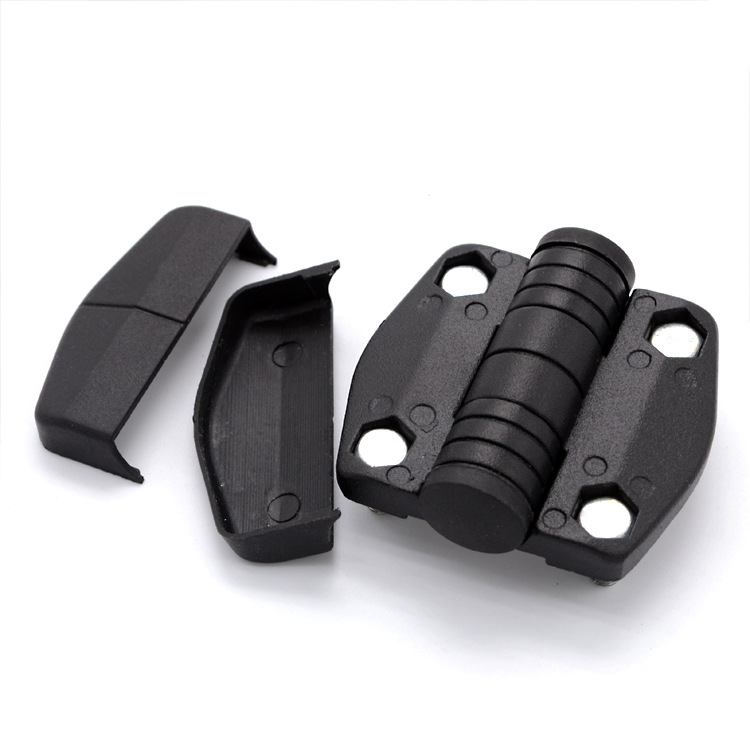
Corrosion Resistance and Surface Treatments for Harsh Environments
Zinc die hinges perform well even in humid or corrosive conditions. The natural oxide layer on zinc provides inherent corrosion resistance, while additional coatings such as nickel plating, electro-galvanizing, or powder coating enhance longevity.
Zinc die hinges maintain stability in harsh industrial and marine environments. In comparison, zinc alloys resist corrosion better than raw steel, especially when paired with Electro-Galvanized and Hot-Dipped Hinges. These treatments form a protective barrier against oxidation and moisture, ensuring the hinge remains reliable over years of service.
In marine or coastal applications, where salt exposure is common, zinc hinges serve as a practical alternative to costly stainless-steel types, balancing performance and affordability without compromising safety.
Load-Bearing Capabilities and Tested Weight Limits
Zinc die hinges undergo rigorous load testing to ensure they meet industrial safety standards. Depending on design and size, they can handle load capacities ranging from 20kg to over 100kg per pair. High-quality zinc hinges often include internal pins or bushings to minimize wear and distribute load efficiently.
Properly engineered zinc die hinges can sustain heavy-duty operation with minimal mechanical wear. Their consistent structure provides stability for large enclosures, industrial ovens, or machinery access doors. Compared with Heavy Duty Detachable Barrel Hinges, zinc versions are lighter but still maintain structural integrity for frequent-use environments.
These load-tested features make them ideal for manufacturing settings where hinges must endure repeated motion without losing alignment or function.
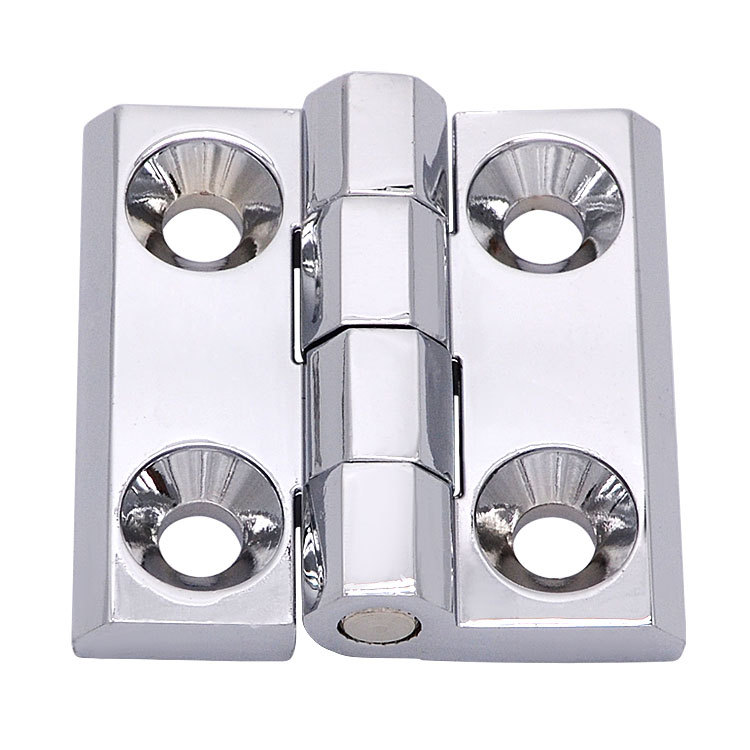
Customization Flexibility and Design Advantages of Zinc Die Hinges
Zinc die casting allows for the integration of complex designs, such as hidden mounting holes, torque adjustments, and anti-vibration structures. Manufacturers can easily tailor hinge geometry to meet the exact specifications of industrial clients, ensuring compatibility with existing designs.
Zinc die hinges offer unmatched customization flexibility in heavy-duty applications. They can incorporate features similar to Adjustable concealed hinges, providing seamless integration and a cleaner aesthetic for industrial equipment. The ability to customize torque, angle, and friction further enhances their adaptability for diverse machinery setups.
Zinc’s versatility also supports branding or special finishes, meeting the needs of OEM clients seeking both functional and visual quality.
Cost Efficiency vs. Performance Balance Compared with Other Hinge Materials
Zinc die hinges stand out for their excellent cost-performance ratio. While not as expensive as stainless steel, they deliver comparable performance for most heavy-duty industrial purposes. This makes them an appealing choice for high-volume manufacturers managing tight budgets.
Zinc die hinges combine affordability and strength, outperforming aluminum and iron in precision applications. When compared with high-grade materials like 316 Stainless Marine Friction Hinges, zinc offers competitive reliability at a fraction of the cost, especially when properly coated.
Their ability to be mass-produced through efficient die-casting processes ensures uniform quality, lower waste, and stable supply for industrial B2B buyers worldwide.
Conclusion
Zinc die hinges are indeed strong enough for heavy-duty industrial use. Their combination of mechanical strength, corrosion resistance, and cost-effectiveness makes them a practical solution for modern manufacturing needs.

